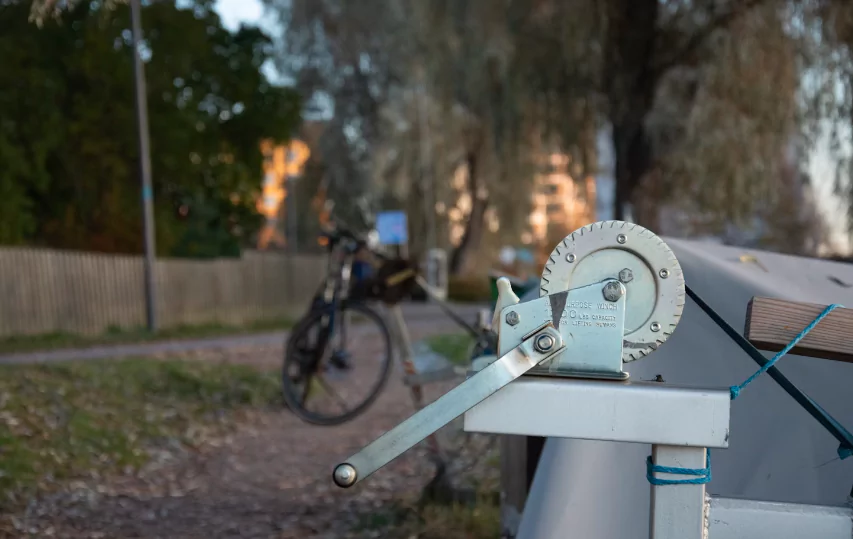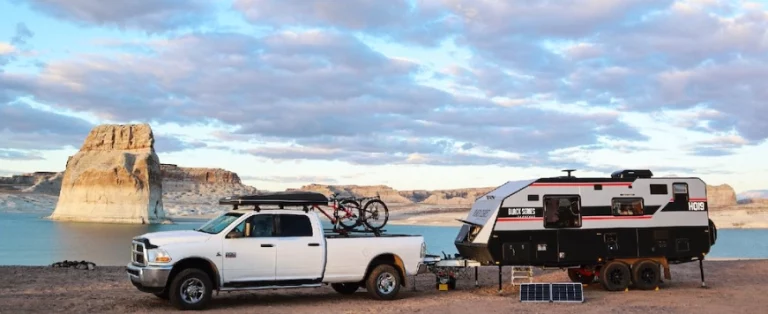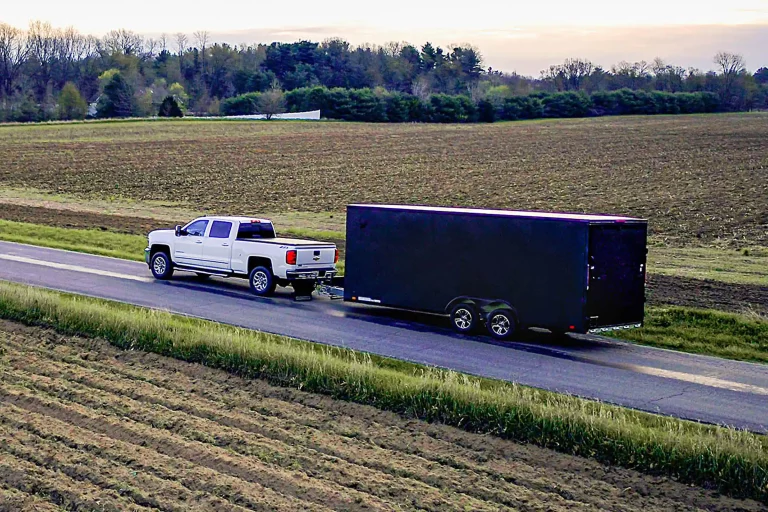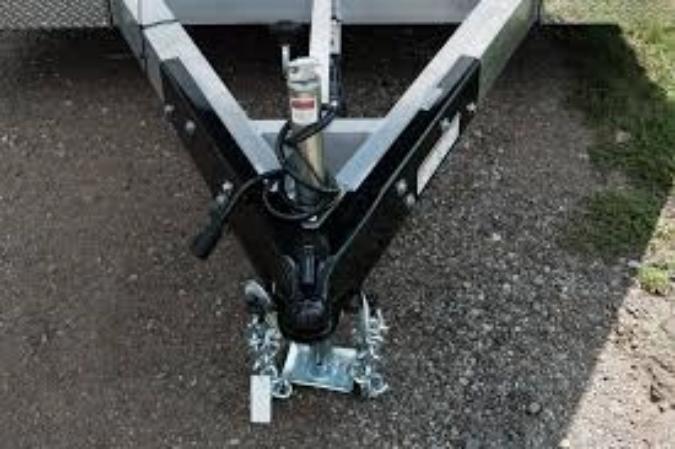A Brief Overview
What is a Winch?
A winch is a device designed to pull in or let out, or adjust the tension of, a rope or wire rope. Powered manually, electronically, or hydraulically, winches are crucial tools in numerous fields because they can generate significant pulling power. They primarily consist of a drum, around which the rope or cable is wound, allowing for the movement of heavy items with ease and precision.
Components of a Winch
The core components of a winch include the drum, motor, gear train, and brake system. The drum is the component that holds the rope or cable, while the motor provides the power that drives the drum. The gear train amplifies the motor’s power, allowing for the efficient movement of heavy loads. The brake system ensures safety by holding the load in place when the operator isn’t actively moving it. Together, these components create a unit capable of performing many demanding tasks.
Types of Winches
Wire Rope
Wire rope winches are popular for their strength and durability. They are often employed in industrial settings where heavy loads need to be moved. Their high strength-to-weight ratio makes them suitable for demanding operations.
Braided Belt
Braided belt winches use synthetic straps instead of wire ropes. These straps are lighter and less prone to kinking, making them ideal for applications where ease of use and quick setup are vital. They are commonly used in vehicle recovery and light-duty lifting.
Bare Metal
Bare metal winches are generally employed in marine settings or in scenarios where there is a need to grip and pull bare metal chains or cables. Their design guarantees robustness and reliability even when exposed to tough conditions.
Electric Winches
Electric winches are powered by an electric motor and are highly customizable. They are favored for their ease of use and are often found in both consumer and industrial applications. They enable fine control over the pull and can be operated remotely in some cases.

Common Uses in Various Industries
Off-Road and Adventure Activities
Vehicle Recovery
One of the most common uses of a winch in off-road and adventure activities is vehicle recovery. When a vehicle gets stuck in mud, sand, or snow, a winch can be used to pull it back to solidity. Thanks to their powerful motors and reliable mechanisms, winches make vehicle recovery straightforward and efficient.
Rock Climbing Assists
In rock climbing, winches offer critical support for hauling gear and even climbers themselves in some emergency situations. They help transport heavy climbing equipment to different locations on precarious terrains, enhancing safety and convenience.
Marine and Boating Applications
Anchoring Assistance
In marine environments, a winch is essential for operations such as anchoring. A marine winch effectively handles the substantial weight of ship anchors, streamlining the anchoring process to be both safer and quicker. Whether through automated or manual methods, retrieving and deploying the anchor can avert accidents and improve the efficiency of ship activities.
Fishing Industry Roles
In the fishing industry, winches play a crucial role by managing the deployment and retrieval of fishing nets and lines. They assist fishermen in handling large catches and cumbersome nets, significantly boosting their operational efficiency and reducing manual labor.
Construction and Heavy Lifting
Load Handling Solutions
Construction projects often require moving large and heavy materials, and winches are ideal for these tasks. Whether lifting building materials to higher floors or pulling them across a site, winches simplify these tasks and make handling loads more efficient.
Safety Enhancements in Construction Sites
Winches enhance safety on construction sites by providing a controlled and stable means of lifting and moving heavy objects. This reduces the risk of accidents and injuries associated with manual handling and ensures that materials are transported in a controlled manner.

Advantages of Using a Winch
Enhanced Safety Measures
A primary benefit of utilizing a winch is the increased safety it provides. Lifting heavy items manually involves considerable risks, such as injuries; winches help reduce these risks by offering mechanical support. The improved control and stability that winches deliver enhance the overall safety in various tasks.
Efficiency and Time Savings
Winches notably increase the efficiency of tasks that involve heavy lifting or pulling. By automating the wind-up and release of cables or ropes, they save a tremendous amount of time and reduce physical strain on workers. This allows for quicker completion of projects and increases productivity.
Versatility Across Different Tasks
The versatility of a winch is another significant benefit. From off-road recovery to industrial applications, winches adapt to a broad spectrum of tasks. Their diverse types, such as wire rope and electric winches, cater to specific needs, making them invaluable in multiple industries and for various purposes.
How to Select the Right Winch for Your Needs
Factors to Consider Before Purchase
Capacity Requirements
When selecting the right winch for your needs, it’s crucial to consider the capacity requirements of the tasks you’ll be undertaking. The capacity of a winch refers to the maximum load it can handle. This is typically measured in pounds or tons. If you choose a winch with too low a capacity, you risk damaging the equipment or failing to perform the task safely. Conversely, a winch with too high a capacity may be unnecessarily expensive and cumbersome. Assess your regular lifting and pulling needs and choose a winch that offers a capacity slightly above this requirement to ensure reliability and safety.
Type of Power Source
The type of power source available for operating your winch is another significant factor to consider. Winches can be powered manually, electrically, or hydraulically. Manual winches require physical effort and are generally used for lighter loads. Electric winches are powered by batteries or a vehicle’s electrical system, making them highly convenient for off-road applications and vehicle recovery. Hydraulic winches, driven by a vehicle’s power steering pump or an independent hydraulic pump, offer robust power for heavy-duty applications and industrial use. Your choice should align with the power availability and the nature of the tasks at hand.
Specific Application Needs
Different applications require specialized winches to achieve optimal efficiency and safety. For instance, off-road enthusiasts would benefit from electric winches with remote control capabilities for ease of operation in harsh conditions. In contrast, maritime applications might require a corrosion-resistant winch built to withstand saltwater exposure. Identify the specific needs of your application—whether it’s for vehicle recovery, marine use, or construction—and select a winch that’s designed to meet these requirements.
If you want to choose a winch product quickly and accurately, you can keep an eye on the Go Trailer. Go Trailer is a leading manufacturer of trailer parts based in Qingdao, China. With over 15 years of experience in the trailer tire and wheel business, Go Trailer specializes in producing a variety of high-quality trailer parts, including indispensable jockey wheels and versatile winches.
Go Trailer’s winches are a game-changer in the trailer industry. They are designed to be used in a variety of scenarios, including the tourism industry, water transport, and off-road travel. Whether you need to drag a camper or RV, move a boat to the dock, or tow a vehicle out of rough terrain, our winches are your reliable companion.
Maintenance Tips for Longevity
Ensuring the longevity of your winch involves adhering to essential maintenance practices. Regular inspection is critical; check all components, including the drum, motor, cable, and brake system, for wear and tear. Lubrication of moving parts reduces friction and prevents rusting, thereby extending the operational life of the winch. It’s also important to store your winch in a dry, clean environment when not in use to minimize exposure to elements that could cause corrosion or damage. Additionally, follow the manufacturer’s guidelines for load limits and operating procedures to prevent overloading and prolong the unit’s lifespan.
Summary
Winches are versatile mechanical devices indispensable across various industries. Whether used for vehicle recovery in off-road environments, anchoring assistance in marine settings, or load handling in construction, their applications are extensive. Key benefits include enhanced safety measures, efficiency, and time savings, as well as versatility across different tasks. When selecting the right winch for your needs, consider the capacity requirements, type of power source, and specific application needs. Regular maintenance and adherence to best practices will ensure your winch remains a reliable tool for your operations.






